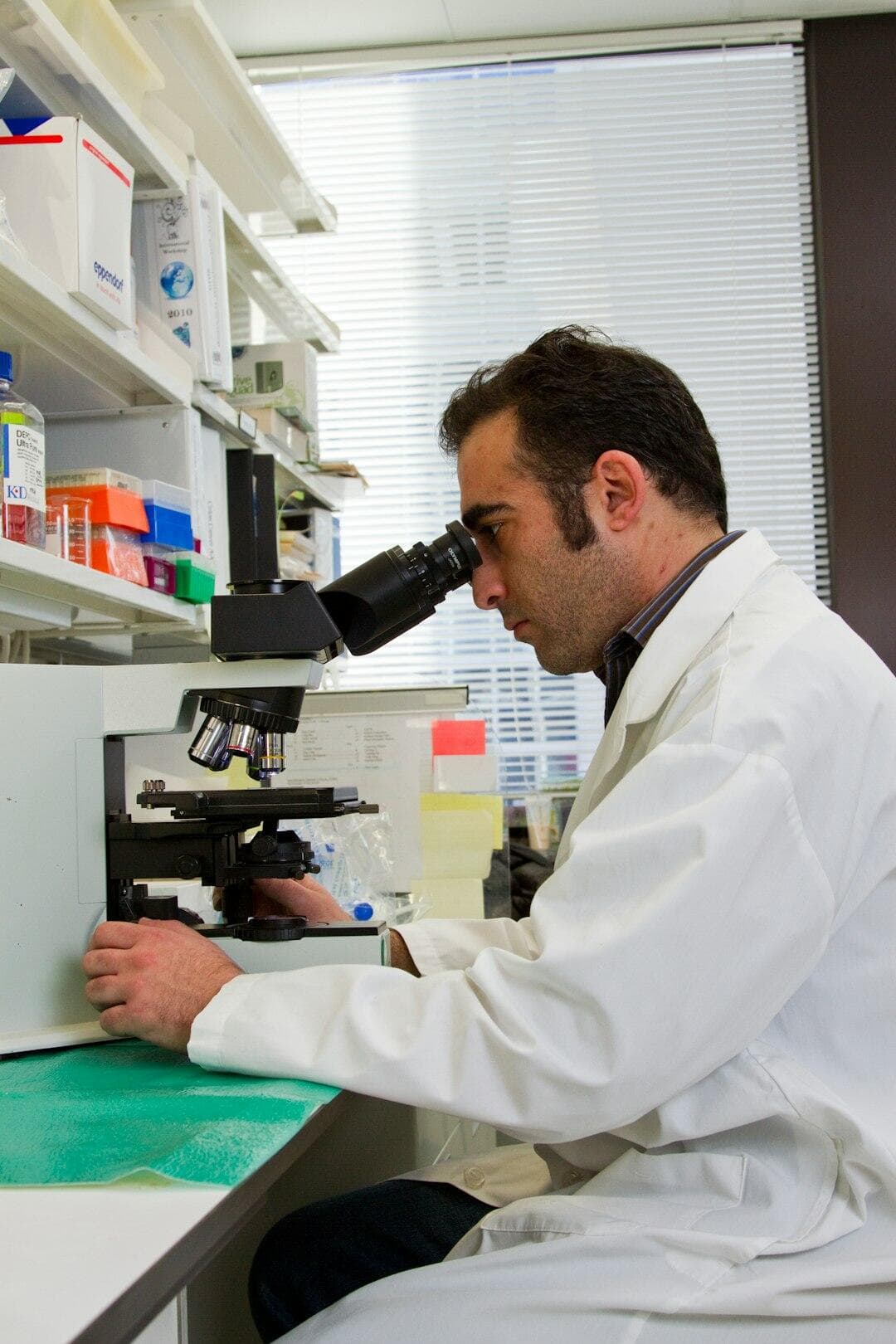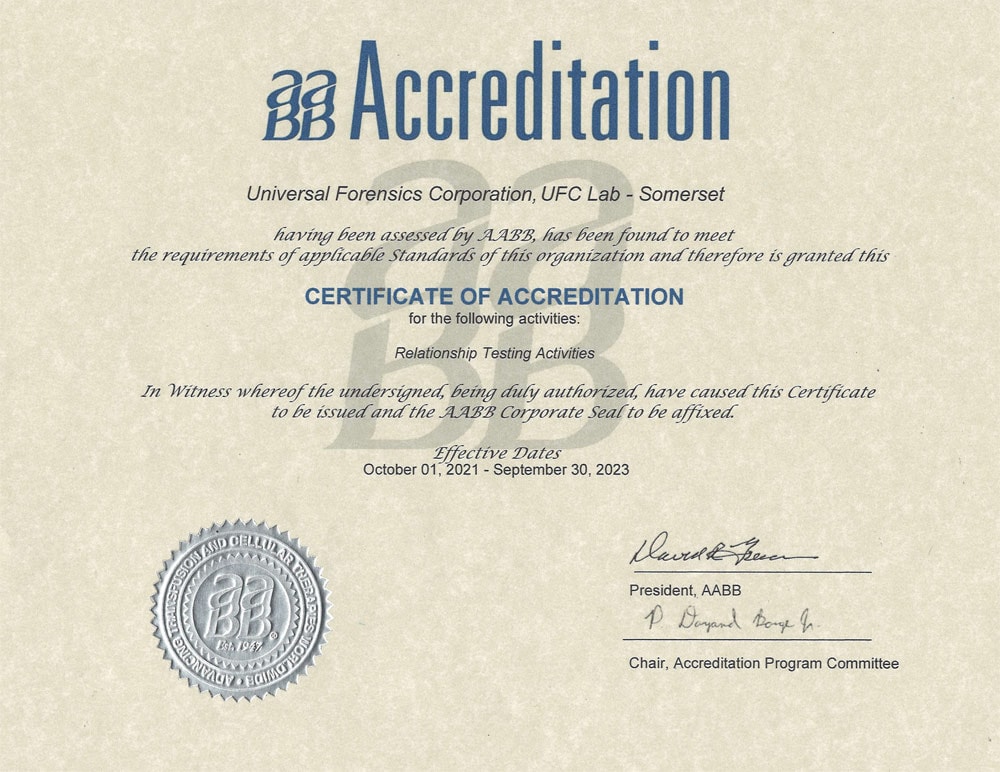When Is a Legal DNA Test Necessary?

A report by the National Registry of Exonerations, which was posted by the Innocence Project, shows that 575 people have been exonerated based on DNA testing in the U.S. This statistic highlights the power of DNA evidence in legal matters. While DNA testing is known for its role in criminal investigations, it serves a variety of purposes.
Unlike curiosity-driven tests, a legal DNA test must meet strict guidelines to be admissible in court. It also has far-reaching ramifications that can significantly impact your life. So, when is a legal DNA test necessary?
Keep reading to explore when a legal DNA test is necessary, the contexts in which it is used, and the implications of its results.
Understanding Legal vs. Non-Legal DNA Tests
Legal and non-legal DNA tests differ in terms of application and protocols followed. A legal DNA test is conducted under strict guidelines to ensure its validity. This involves maintaining a documented chain of custody for the samples collected.
Every step, from collection, handling, and transportation, is recorded to prevent tampering or contamination. In contrast, non-legal DNA tests are personal and curiosity-driven. They do not require stringent measures since they are not admissible in court.
Common Scenarios Requiring Legal DNA Tests
The scenario under which you can be asked to take a legal DNA test can vary depending on the legal context. Discover some common scenarios in which legal DNA tests may be necessary.
Paternity and Maternity Cases
Legal paternity and maternity tests can help provide definitive proof of biological relationships. Courts often require such tests to make informed child welfare decisions. This includes matters like:
- Child custody
- Child support
- Visitation rights
The court can also ask you to take such tests in contested estate inheritance cases. Legal DNA testing can help identify the rightful heirs to an estate.
Immigration Matters
In immigration cases, legal DNA tests help enhance compliance with the set legal standards. Based on familial relationships, proof may be required when you apply for visas or residency.
The tests prevent familial relationship fraud, which undermines the immigration system’s integrity. If you don’t have traditional documentation, such as a birth certificate, the only option is a legal DNA test.
Criminal Cases
In criminal investigations, DNA testing can help identify suspects or exonerate individuals. Once a crime happens, detectives collect DNA samples from the scene under strict guidelines. The samples are then compared with the suspect’s DNA to determine biological connections.
If a person has been wrongfully convicted, a legal DNA test can help reopen the case. The test provides crucial evidence that can exonerate them.
Essential Legal DNA Test Steps
Understanding the process involved in DNA testing is essential in preventing contamination. It also lets you comply with legal standards, ensuring results are admissible in court. Here are the steps to follow when obtaining a legal DNA test:
Consultation
The process typically starts with consulting a legal professional or a certified laboratory expert. During this consultation, you will discuss the purpose of the test. You’ll learn about the procedure and what to expect.
The legal professional will also notify you of the legal implications of the results. This will help you prepare for the next steps, such as court proceedings or other legal processes.
Consent
Once you’ve agreed to proceed with the test, informed consent will be required from all parties involved. This ensures everyone is agreeable to the nature of the test and potential outcomes.
Consent also helps establish transparency. Transparency ensures the results are admissible in court.
Sample Collection
This step involves collecting DNA samples. It’s done using non-invasive methods like saliva or cheek swabs. A DNA testing specialist can also use other methods depending on the situation.
Trained personnel carry out this step under strict protocols. The collected samples are then labeled and sealed carefully to prevent contamination. This ensures the samples maintain their integrity and reliability for legal purposes.
Testing and Results
Once sealed and labeled correctly, the samples are forwarded to an accredited laboratory for analysis. The lab technicians carry out necessary tests to compare the DNA samples. This helps establish biological relationships or identify genetic markers.
The turnaround time for the results can range from days to a few weeks. This will depend on the complexity of the test and the lab’s procedure. Once the testing is complete, the lab specialist will document and forward the results to your legal representative for further action.
Cost of Legal DNA Tests
Understanding the cost of DNA testing for legal purposes can help you make informed decisions about your financial commitment. While there is no fixed cost, various factors can influence the amount you pay for the process. The factors include:
- Type of test required
- Laboratory used
- Additional services involved
- Number of samples and participants
Ensure you choose an accredited laboratory. Check if the lab adheres to compliance for legal DNA tests. Otherwise, violation of protocols can lead to the invalidation of the results.
When Is a DNA Test Not Legally Binding?
Although a DNA test can provide accurate results, there are certain situations where it can’t be legally binding. This can happen when:
- A DNA testing specialist doesn’t follow the right protocols
- There is a compromise to the chain of custody
- The testing specialist doesn’t obtain your informed consent
- Non-accredited laboratories conduct test
- There is no court-ordered DNA test
- Samples are improperly handled or labeled
The court will likely question your DNA test’s legal weight in any of these situations. This is despite the DNA providing scientifically accurate results.
Need a Legal DNA Test? Explore Your Options Now
Understanding when a legal DNA test is necessary can help you make informed decisions. Knowing the right time and process ensures you meet all the requirements. Whether the test is for paternity, immigration, or a legal dispute, be fully prepared for your next steps.
Don’t let uncertainty about legal DNA testing hold you back. ReliaLab Test offers reliable and secure DNA testing services for various legal scenarios, ensuring quick and accurate results. We aim to help our clients navigate the legal DNA testing process with confidence.
Contact us today to learn more about our legal DNA testing services and how we can assist you.








